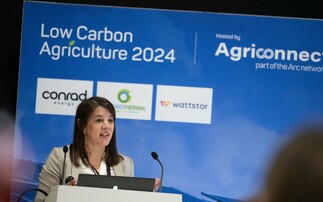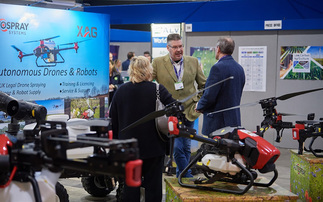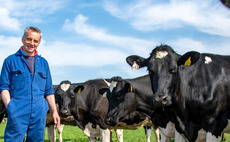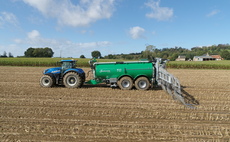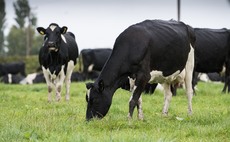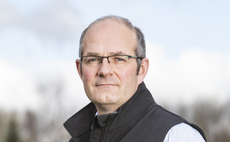
Last week, regenerative agriculture conference Groundswell took place at Lannock Manor Farm in Hertfordshire. Cedric Porter and Jez Fredenburgh report on the highlights.
Defra Secretary George Eustice came under pressure to regulate the wild west carbon market at the Groundswell event last week.
NFU president Minette Batters said she was concerned that a lack of regulation could leave farmers vulnerable to schemes that lose them money.
We need a common set of standards and methodologies that measure carbon and regulate carbon payments, she added.
Responding, Mr Eustice said Defra Minister Lord Benyon was conducting a review of green financing that includes carbon trading.
The Government has also established the independent UK Green Taxonomy Group to advise on standards for green investment, he said.
Meanwhile, Government has recognised the UK Woodland Carbon Code as a means of offsetting a companys carbon emissions.
A large number of carbon trading companies were exhibiting at the event, as pressure for companies to reduce their carbon footprint to net zero by 2050 increases.
There was criticism the recent National Food Strategy did not include more on human health and nutrition, including from Henry Dimbleby, author of the Government-commissioned review into food policy.
Fellow restaurateur Thomasina Myers condemned the failure to impose a tax on food that is high in sugar and fat or highly processed.
Mr Eustice said taxation measures had not be ruled out, but also explained the Government would not adopt Mr Dimblebys recommendation for a goal of a 30 per cent reduction in UK meat and dairy consumption.
Such a reduction would have a miniscule impact on global carbon emissions, he said.
Far more important is for the UK to develop systems and technology such as the use of feed additives that reduces the output of carbon from livestock and share that with the world.
What attendees had to say
Gary Markham, accountant and director of Land Family Business, giving a talk at the show
Talking about how younger generations want to farm more sustainably/differently, and how this is causing disagreements, he said: Behind every farming business there is a family and family dynamics and I think there is a generational thing going on.
Traditional farming has been there to make money and obviously that is changing as we become more aware of the damage it is doing to the environment. The younger generation are very switched on to this and want to change and the older generation are not.
Traditionally, the older generation are in charge for a very long time. What happens is it becomes a dysfunctional family and I have also seen young people walk off the farm. There is a lot more work that needs to be done in the industry to help families.
Penny and Nigel Frankling, Surrey, farming grass-fed beef, chicken and pork. Held a pop-up burger/beef baguette stall at the event.
On starting out in regenerative agriculture eight years ago, Mrs Frankling said: I was looking to find out how to grass finish cattle and kept being told by other farmers that it could not be done. Then I found Pasture for Life and there is so much knowledge there.
The amount of grass we are growing now is amazing compared to eight years ago, just through mob grazing, moving the cattle, rest periods of a minimum of 60 days, not doing the same thing every year and keeping observing.
Everything I learned at agricultural college I had to forget and relearn, especially about soil and how the soil biology and animals interact.
Other parts from the conference
Regen meat
The importance of meat in a regenerative farm was one of the key themes of Groundswell.
US dietitian and producer of the film Sacred Cow, Diana Rodgers, stressed the importance of meat from well-managed grazing cattle and sheep in human diets.
She said: People have lost their ability to critically think and see nuance. The anti-meat message is just assumed to be accurate.
US environmental consultant Seth Itzkan also argued that grasslands have acted as a thermostat for the climate throughout history, keeping temperatures relatively steady and trapping carbon.
He said preserving grassland and preventing deforestation would be key to preventing climate change, but there needed to be a more holistic and scientific approach to how grasslands were managed.
Promoting perennials
The root cause of many farm environmental problems, including greenhouse gas emissions, soil erosion, nutrient leaching, water pollution and the high use of agrochemicals, is a dependence on annual crops.
That was the view of Lennart Olsson, a professor at Lund University in Sweden.
He said advances in perennial grain crop breeding offered the opportunity to produce food with a much lower environmental footprint.













